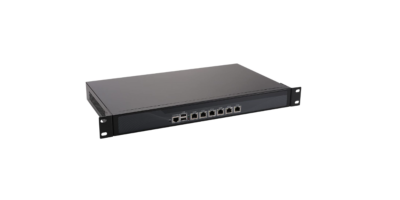In today’s digital age, protecting sensitive patient information is paramount in the healthcare industry. The Health Insurance Portability and Accountability Act (HIPAA) sets forth stringent guidelines to safeguard patients’ privacy and security. Among its many provisions, HIPAA mandates specific requirements for passwords and policies to ensure the confidentiality and integrity of electronic protected health information (ePHI). In this comprehensive guide, we’ll delve into the HIPAA password requirements and policies, offering insights and best practices to help healthcare organizations stay compliant and secure.
Understanding HIPAA Password Requirements
HIPAA’s Security Rule outlines the standards for protecting ePHI, including requirements for passwords and access controls. While HIPAA does not provide specific password criteria, it mandates that covered entities and business associates implement reasonable and appropriate safeguards to protect electronic health information. This includes establishing strong password policies tailored to their organization’s needs and security risk assessments. Here are key aspects of HIPAA password requirements:
1. Unique User Identification
HIPAA requires healthcare organizations to assign unique user identifiers to employees accessing ePHI systems. Each user must have their own login credentials to track access and ensure accountability.
2. Password Strength
While HIPAA doesn’t prescribe specific password complexity rules, it emphasizes the importance of strong passwords to prevent unauthorized access. Organizations should encourage employees to create complex passwords containing a mix of uppercase and lowercase letters, numbers, and special characters.
3. Regular Password Updates
HIPAA encourages periodic password changes to mitigate the risk of unauthorized access due to compromised credentials. However, it’s essential to strike a balance between security and usability to avoid burdening users with overly frequent password changes.
4. Account Lockout Policies
Implementing account lockout policies can help prevent brute force attacks by temporarily locking out users after multiple failed login attempts. This measure enhances security by thwarting automated password guessing attempts.
5. Encryption
While not specifically related to passwords, HIPAA mandates the encryption of ePHI to protect data both at rest and in transit. Encrypting passwords stored in databases adds an extra layer of security, rendering them unreadable even if the database is compromised.
Crafting an Effective HIPAA Password Policy
Developing a robust password policy is essential for HIPAA compliance and ensuring the security of ePHI. Here’s a step-by-step approach to crafting an effective HIPAA password policy:
1. Risk Assessment
Begin by conducting a thorough risk assessment to identify potential security vulnerabilities and risks related to ePHI. This assessment will inform the development of your password policy and other security measures.
2. Define Password Requirements
Based on the risk assessment findings and HIPAA guidelines, define specific password requirements for your organization. This may include minimum length, complexity, and expiration period for passwords.
3. Communicate Policy
Clearly communicate the password policy to all employees and provide training on password best practices. Ensure that employees understand the importance of creating strong passwords and safeguarding their credentials.
4. Implement Technical Controls
Use technical controls such as multi-factor authentication (MFA) and password management tools to enhance password security. MFA adds an extra layer of protection by requiring users to provide additional authentication factors, such as a one-time passcode sent to their mobile device.
5. Enforce Policy Compliance
Regularly audit password compliance and enforce consequences for policy violations. This may include disciplinary actions for employees who fail to adhere to the password policy or jeopardize the security of ePHI.
6. Stay Updated
Continuously monitor emerging threats and update your password policy accordingly to adapt to evolving security risks. Regularly review and revise the policy to ensure it remains effective in safeguarding ePHI.
Best Practices for HIPAA Password Management
In addition to establishing a robust password policy, healthcare organizations can adopt the following best practices to enhance HIPAA password management:
- Use Secure Authentication Methods: Implement secure authentication methods such as biometric authentication or token-based authentication for added security.
- Educate Employees: Provide ongoing training and awareness programs to educate employees about the importance of password security and how to recognize phishing attempts or other social engineering tactics.
- Monitor and Audit Access: Implement logging and auditing mechanisms to monitor user access to ePHI systems. Regularly review access logs to detect any unauthorized access or suspicious activity.
- Regular Security Updates: Ensure that systems and software are regularly updated with the latest security patches to address vulnerabilities and prevent exploitation by malicious actors.
- Data Backup and Recovery: Implement robust data backup and recovery procedures to ensure the availability of ePHI in the event of a security incident or data breach.
- Third-Party Vendor Management: If using third-party vendors or service providers, ensure they comply with HIPAA requirements and have appropriate security measures in place to protect ePHI.
Conclusion
Compliance with HIPAA password requirements and policies is essential for safeguarding ePHI and maintaining patients’ trust in the healthcare system. By implementing strong password policies, educating employees, and employing robust security measures, healthcare organizations can mitigate the risk of data breaches and ensure compliance with HIPAA regulations. Regular risk assessments, policy reviews, and staying abreast of emerging threats are key to maintaining a secure and compliant environment for handling sensitive patient information. Remember, protecting patient privacy and security is not just a regulatory requirement but a fundamental responsibility of every healthcare organization.
MedicalITG’s HIPAA-compliant services can help healthcare organizations meet their security and compliance requirements. Contact us today on (877) 220-8774 or email at info@medicalitg.com to learn more.










